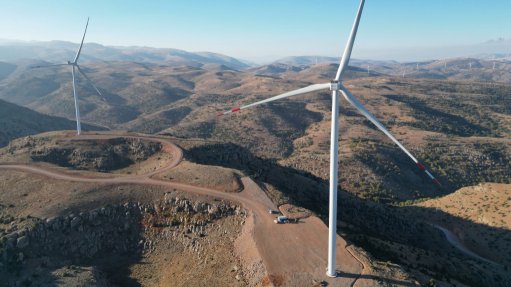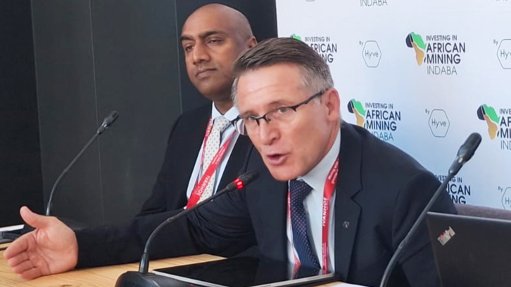Disappearing forests
In rather melodramatic fashion, one journalist, writing in June this year, portrayed the rate at which the world is losing its forests thus: “Image looking down on a huge swathe of lush forest – but before you can pull out your phone to take a picture, it’s gone.”
A look at the latest tree cover numbers shows that the journalist was not off the mark at all. According to the World Resources Initiative, over the past two years, tracts of tropical forest the size of 40 football fields were clear-cut or burnt every minute of every day to increase crop production or animal husbandry activities. Increasingly, fires, droughts and storms are also contributing to the loss, as they are occurring more frequently and their impacts are intensifying, owing to climate change.
A total of 15.8-million hectares of tree cover disappeared in tropical regions in 2017, second only to the 16.9-million hectares recorded in the preceding year, with Latin America, South-East Asia and Central Africa bearing the brunt of the loss.
Tree cover loss has nearly doubled during the past 15 years. Forest destruction of this magnitude is bad news indeed. As scientists tell us, forests play a very important role in curbing climate change: they capture and absorb carbon dioxide and affect the speed of wind, rainfall patterns and atmospheric chemistry. Without them, the world will become a hotter and drier place.
But that’s the global picture – how is Africa faring?
The continent’s tropical forests – comprising the Guinean forests of West Africa and the Congo basin, a sprawling rain- forest that has earned the moniker of ‘the world’s second set of lungs’ – contain 71 gigatons of carbon and are home to many plant and animal species that are not found anywhere else in the world. What’s more, they serve as a source of livelihood for an estimated 100-million people.
Africa’s forests have suffered – and continue to suffer – the same fate as forests elsewhere in the word. Abraham Baffoe, Africa regional director at Proforest, an organisation focused on the sustainable management and sourcing of natural resources, put the state of affairs into sharp focus in a recent interview. According to him, West Africa has lost about 90% of its tree cover during the past 100 years, with countries like Ghana and Côte d’Ivoire no longer having any forest left apart from ‘protected forests’, or reserves, which are themselves being encroached upon and degraded by excessive logging and exploi- tation. While the Congo basin still has forests outside the reserves, these are fast disappearing.
If the status quo is perpetuated, Baffoe warns, several plant and animal species that are unique to Africa will be extinct, while climate change will accelerate and those who depend on the forests – socially and economically – will be dealt a hammer blow.
Deforestation is not confined to tropical African countries, however; even those that are located far away from the Equator are also experiencing it.
As for a solution to this phenomenon, Baffoe stresses that governments alone will not be able to turn the tide: we need to have as many hands as possible on deck. Even private individuals can play a part, I would say. Think of Wangari Mathaai, the late environmental activist. Through the Green Belt Movement (GBM), which she founded in 1977, she mobilised grassroots women to plant more than 50-million trees in her native Kenya. This was in response to the needs of rural women, who were concerned about their streams drying up and their food supply becoming less secure. They were also having to walk farther and farther to get wood for fuel and fencing.
Mathaai’s work did not go unnoticed by the Nobel Prize Committee, which awarded her the Nobel Peace Prize in 2004. She may have died – in 2011 – but her legacy lives on and the work she did continues to be recognised. The latest accolade was bestowed on the GBM at the inaugural Africa Environment Partnership Platform of the New Partnership for Africa’s Development, which was held in Nairobi, Kenya, last month.
Article Enquiry
Email Article
Save Article
Feedback
To advertise email advertising@creamermedia.co.za or click here
Comments
Announcements
What's On
Subscribe to improve your user experience...
Option 1 (equivalent of R125 a month):
Receive a weekly copy of Creamer Media's Engineering News & Mining Weekly magazine
(print copy for those in South Africa and e-magazine for those outside of South Africa)
Receive daily email newsletters
Access to full search results
Access archive of magazine back copies
Access to Projects in Progress
Access to ONE Research Report of your choice in PDF format
Option 2 (equivalent of R375 a month):
All benefits from Option 1
PLUS
Access to Creamer Media's Research Channel Africa for ALL Research Reports, in PDF format, on various industrial and mining sectors
including Electricity; Water; Energy Transition; Hydrogen; Roads, Rail and Ports; Coal; Gold; Platinum; Battery Metals; etc.
Already a subscriber?
Forgotten your password?
Receive weekly copy of Creamer Media's Engineering News & Mining Weekly magazine (print copy for those in South Africa and e-magazine for those outside of South Africa)
➕
Recieve daily email newsletters
➕
Access to full search results
➕
Access archive of magazine back copies
➕
Access to Projects in Progress
➕
Access to ONE Research Report of your choice in PDF format
RESEARCH CHANNEL AFRICA
R4500 (equivalent of R375 a month)
SUBSCRIBEAll benefits from Option 1
➕
Access to Creamer Media's Research Channel Africa for ALL Research Reports on various industrial and mining sectors, in PDF format, including on:
Electricity
➕
Water
➕
Energy Transition
➕
Hydrogen
➕
Roads, Rail and Ports
➕
Coal
➕
Gold
➕
Platinum
➕
Battery Metals
➕
etc.
Receive all benefits from Option 1 or Option 2 delivered to numerous people at your company
➕
Multiple User names and Passwords for simultaneous log-ins
➕
Intranet integration access to all in your organisation


















